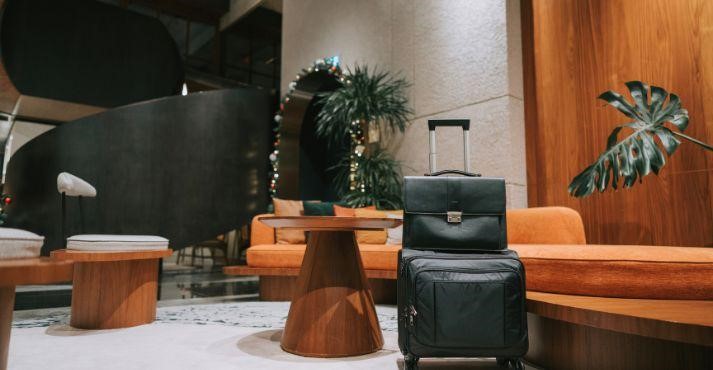Boutique hotels are becoming more popular than ever. Travelers are drawn to these small, stylish hotels because they offer a unique and exclusive experience.
But what is a boutique hotel? These hotels are usually small, with fewer than 100 rooms, and they provide a cozy, personalized service that makes guests feel special.
Boutique hotels often reflect the local culture and the personality of their owners or designers. The industry is proliferating, reaching a market size of $99.5 billion in recent years.
This rise in popularity shows that more and more people appreciate the charm and individuality of boutique hotels.
Whether it’s the intimate atmosphere, the chic design, or the personalized service, there are many reasons why travelers prefer boutique hotels over regular ones. Let’s dive into what makes these hotels so appealing.
What is a Boutique Hotel?
A boutique hotel is a small, intimate hotel that offers personalized service and a distinct character. Typically, these hotels have fewer than 100 rooms, creating a cozy and exclusive atmosphere for guests.
The design and décor of boutique hotels are unique, often reflecting the local culture and the personality of the owners or designers. They offer amenities similar to larger hotels but with a more customized and luxurious touch.
The concept of boutique hotels originated in the 1980s. Bill Kimpton, an investment banker who traveled extensively in Europe, was inspired by the small, charming hotels he stayed in overseas.
He brought this idea back to the United States and opened the first boutique hotel, The Bedford Hotel, in San Francisco in 1981. This small hotel focused on creating a warm, inviting atmosphere where guests felt at home.
Another key milestone in the history of boutique hotels was Ian Schrager’s opening of Morgans Hotel in New York in 1984. Schrager’s vision and innovative design helped popularize the boutique hotel concept, making these boutique hotel brands a trend in the hospitality industry.
Today, many travelers seek out these aesthetic hotels for their unique charm, personalized service, and intimate settings. The distinctive boutique hotel rooms are designed to provide a memorable and luxurious stay.
Characteristics of Boutique Hotels

1. Size and Scale
Boutique hotels are typically small, with 10 to 100 rooms. This small scale contributes to a more intimate and personal experience for guests. Unlike larger chain hotels, the smaller size of a boutique hotel allows for more attention to detail and a higher level of personalized service.
Guests often feel more like they are staying in a friend’s home rather than a hotel, which adds to the charm and allure of these small hotels.
2. Design and Architecture
One of the standout features of boutique hotels is their unique design and architecture. Each boutique hotel often boasts a distinctive style that reflects its location, history, or the vision of its owner.
For example, some boutique hotel brands may feature contemporary or minimalist designs, while others might adopt a vintage or eclectic aesthetic. The attention to detail in the design elements, from the lobby to the individual boutique hotel rooms, sets these hotels apart.
Notable examples include the art-deco-inspired Chatwal Hotel in New York and the rustic, locally-themed Inn of the Five Graces in Santa Fe.
3. Personalized Service
Boutique hotels prioritize personalized service, offering a more customized guest experience. Staff members often know guests by name and provide tailored recommendations and services.
This attention to detail extends to the amenities, with options for guests to customize their toiletries, room settings, and dining preferences.
Such personalized touches help attract hotel customers who seek a unique and memorable stay. This focus on individual needs also promotes hotel customer loyalty, as guests are more likely to return to a place where they feel genuinely cared for.
4. Location
The location of a boutique hotel is often a crucial part of its appeal. These hotels are commonly found in urban centers, historic districts, and unique neighborhoods. They are strategically placed to offer guests easy access to local attractions, cultural landmarks, and vibrant communities.
For instance, many boutique hotels in cities like Paris, London, and New York are located in trendy, artsy neighborhoods, providing guests with an authentic and immersive experience of the city.
5. Local Flavor
A defining characteristic of boutique hotels is their emphasis on local culture and community. This is evident in the use of locally sourced materials in the hotel’s construction and décor and in the cuisine offered.
Boutique hotels often partner with local artisans, chefs, and vendors to create a unique and authentic experience for their guests. This focus on local flavor enhances the guest experience, supports the local economy, and promotes a sense of community.
Advantages of Staying in a Boutique Hotel

1. Unique Experience
Staying in a boutique hotel offers a unique and memorable experience that differentiates it from chain hotels. Each boutique hotel has its individuality and charm, often reflecting the local culture and the personality of its owners or designers.
This means all boutique hotels are different, providing guests with a fresh and distinct experience every time they stay. Whether it’s the quirky décor, the themed rooms, or the personalized touches, boutique hotels ensure that guests remember their stay long after they leave.
2. Attention to Detail
One key advantage of boutique hotels is the thorough attention to detail. Everything is designed to enhance the overall stay, from the carefully chosen room decor to the personalized guest services.
Guests can enjoy customized amenities like bespoke toiletries, tailored room settings, and personalized dining experiences.
This high level of detail not only improves the quality of the stay but also plays a crucial role in attracting patrons who appreciate the extra effort.
3. Enhanced Privacy and Exclusivity
With fewer rooms, typically between 10 and 100, boutique hotels offer increased privacy and exclusivity. The limited number of guests allows the hotel staff to provide more focused and attentive service, ensuring that each guest feels unique and valued.
This intimate setting allows for a peaceful and private stay away from the hustle and bustle of larger chain hotels.
The sense of exclusivity and personalized attention further enhances the appeal of boutique hotels, making them a preferred choice for those seeking a more private and luxurious experience.
Popular Examples of Boutique Hotels in Southeast Asia
1. The Warehouse Hotel, Singapore

The Warehouse Hotel in Singapore
The Warehouse Hotel in Singapore is an excellent boutique hotel that mixes old charm with modern style. It’s in a building that was a warehouse in the 19th century. You’ll see exposed brick walls, high ceilings, and sleek furniture that make it look stylish and unique.
This small hotel celebrates local culture and history, and its friendly staff ensures every guest feels special. It’s a great place to stay if you want a trendy and aesthetic hotel experience in Singapore.
2. The Siam, Bangkok
The Siam in Bangkok is a fancy boutique hotel by the Chao Phraya River. Its beautiful art deco design and lush gardens make it feel like a luxurious escape. The rooms are big and filled with antiques and artwork, giving each one a unique look.
The hotel offers special services like private butlers and personalized tours, ensuring your stay is unforgettable. The Siam is perfect if you want a fancy and exclusive place to stay in Bangkok.
3. The Edison George Town, Malaysia
The Edison George Town in Penang is a boutique hotel that beautifully combines old and new. It’s in a colonial mansion from the early 20th century so that you can taste Malaysia’s history.
The rooms are a mix of modern and vintage, making them cozy and inviting. It’s in the middle of George Town, so you’re close to many cultural and historical sites. The friendly staff and great location make it a favorite for travelers exploring the area.
Boutique Hotels vs. Chain Hotels

When choosing a place to stay, travelers often have to choose between boutique hotels and chain hotels. Each offers a different experience, from the level of service to the overall atmosphere and cost.
1. Personalized vs. Standardized
Boutique hotels are known for their personalized experiences. Guests often receive tailored services, and the staff remembers their names and preferences, creating a welcoming and home-like environment.
In contrast, chain hotels provide standardized services to ensure consistency across all locations. While this guarantees a certain level of service, it often needs a more personal touch than boutique hotels offer.
2. Design and Atmosphere
Boutique hotels are unique and distinctive in design and atmosphere. Each has its own style, often reflecting the local culture and the owner’s personality. This can make staying at a boutique hotel a special and memorable experience.
On the other hand, chain hotels usually have a uniform appearance and design. This consistency can be comforting for some travelers, but boutique hotels may need more charm and individuality.
3. Cost Considerations
The cost of staying in a boutique hotel can vary. Because of their personalized service and unique design, boutique hotels might be more expensive than chain hotels. However, the value for money can be higher as guests enjoy a more intimate and customized experience.
Chain hotels might offer lower prices and more predictable costs, making them a practical choice for budget-conscious travelers.
Conclusion
In conclusion, understanding what is a boutique hotel reveals why these unique establishments are becoming increasingly popular. Boutique hotels offer a distinct and personalized experience that sets them apart from the standardized services of chain hotels.
Their small size, unique design, and emphasis on local culture and personalized service create a memorable and intimate atmosphere for guests.
While they might come at a higher cost, the value for money is often more significant due to the customized and luxurious experience they provide.
Whether seeking a cozy retreat in a vibrant urban center or a stylish getaway in a historic district, boutique hotels offer a charming and individualized stay that caters to the discerning traveler. Choosing a boutique hotel means choosing a stay that is as unique as you are.















